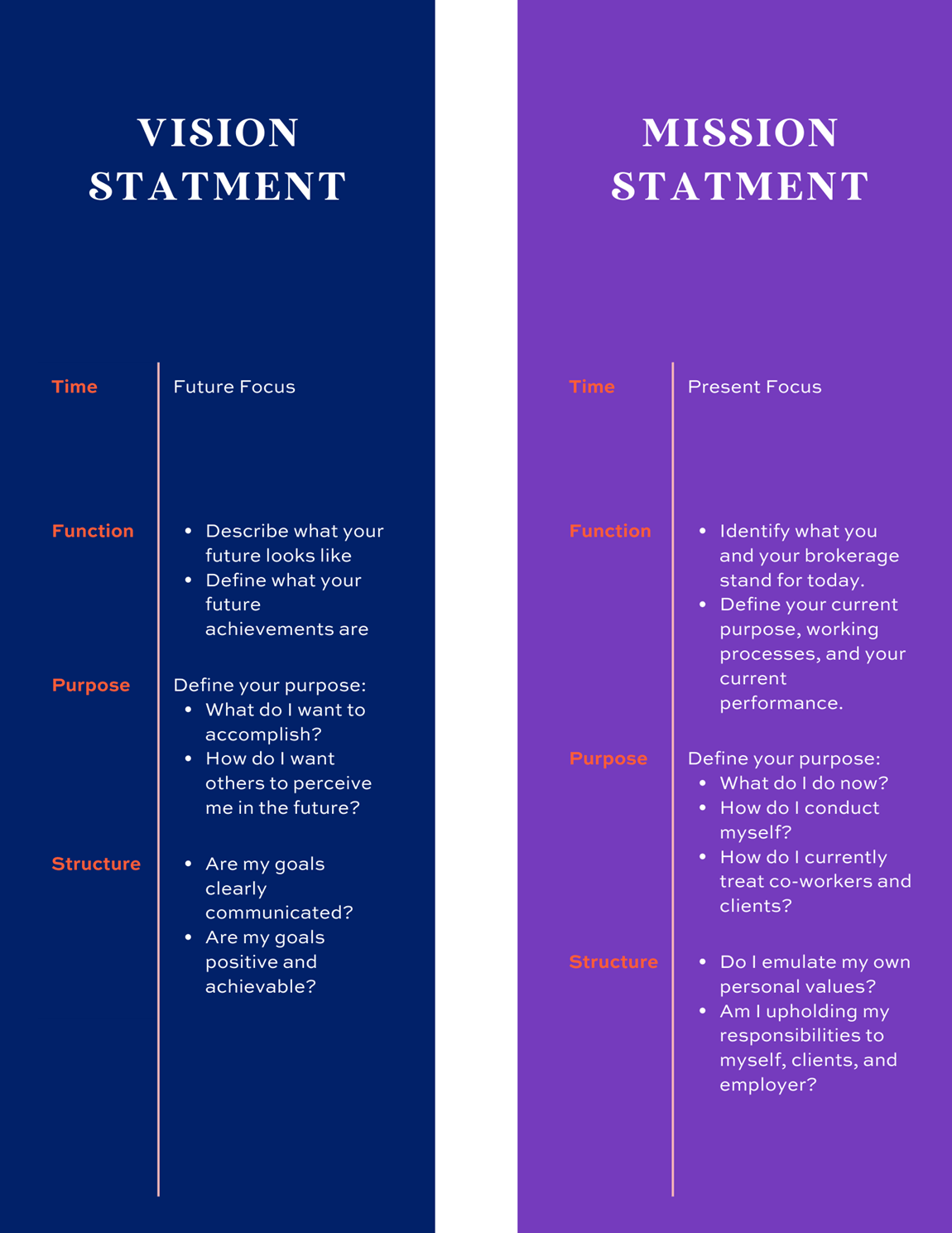Gabbi knew that real estate was the right career from the start. She is now dual licensed in both Kentucky and Ohio. She had her first sale within a month of getting licensed and hit her first million in volume within her first 6 months. She will have her real estate license for the rest of her life. Call her anytime if you have questions about becoming a real estate agent. She loves to share her passion for real estate with others!
Business Planning for Real Estate Professionals

To be successful as an agent you must plan accordingly. You need to set realistic goals that will serve as a roadmap for you to grow as a professional in real estate. Let’s first start with your why. What is your business purpose?
Let’s talk about four key factors that influence your business purpose:
- Independence: This is your chance to set your schedule and be in control of your career to build your own success. If this is a motivator for you, then it should be a key part of your business purpose.
- Service Mindset: This is your chance to help people. You are going to influence people and their own personal goals. By assisting people in buying and selling their own assets, you are making a difference in their own personal success.
- Personal Growth: Don’t compare yourself to others. You need to be able to put your head down and focus on your own person growth. As you educate people on the housing practice, make sure to continue your own personal education growth by taking continued education courses that you are interested in.
- Unlimited Income: Remind yourself that there is no glass ceiling in real estate. If you are motivated by money, that’s okay, a lot of people are. Continue to remind yourself that if you continue to work hard your earning potential with continue to increase.
Real estate is an industry that is all about having a solid mindset; continue to remind yourself that your efforts and your determination will create your future success.
When you are feeling unmotivated repeat these mantras to reset:
- The more I produce, the more referrals I can obtain, which increases my market reach.
- If I need money, I will create opportunities necessary to make money.
- The more I can learn, the more I can share.
- The more people I can help, the more connections I create and the more my reputation spreads.
Make sure that you are filling your day with activities that will create opportunities for your business.
Here’s a list of examples that will help this happen:
- Building networks and finding people who are willing to help your business grow.
- Reciprocating leads, finding leads for other professionals so that they will also find leads for you.
- Adding value to all your services for your clients.
- Creating new markets for yourself or new opportunities.
- Becoming a marketing innovator.
Let’s begin drafting your business plan. Here I will map out a foundation that has several key components, each will require thoughtful effort on your part.
Try to identify your own vision for each of these components in your business plan.
- Vision of the Future: Start by creating what you want your business to become. How many transactions would you like to close a month or in a year?
- Goals and Objectives: A solid business plan requires you to think about what you want to accomplish. Trying using the SMART method, have your goals and objectives be specific, measurable, attainable, realistic, and timely.
- SWOT Analysis: Be realistic when assessing where you are now. Look at your strengths, weaknesses, prospects, and threats to these opportunities. This will help take advantage of your strengths and minimize your weaknesses.
- End Result: Determine how much income you’d like to achieve this year and next. Calculate what kind of sales numbers you’d need to achieve to reach that goal and determine if this is realistic for you.
- Branding: Create a vision of what you’d like to represent. Create your own personal brand and think about that branding whenever you are in front of potential customers. Be consistent and find ways to stand out.
- Marketing and Production Strategies: Your goals can only be achieved by your own efforts. Show up for yourself each day and try to be as consistent as possible. Remember that your daily efforts are going to pay off in the long run. Try different marketing strategies to see what works best for you. You can’t know what’s the best strategic plan path until you try it out yourself.
- Financial Planning: Take in consideration the following elements when planning your own financial future.
- Production: Keep track of all your transactions and keep a list of all your clients and potential clients.
- Promotion: Keep a detailed list of all your marketing efforts and how they contributed to your total production.
- Expenses: You are an independent contractor; therefore, you need to keep track of all your expenses so that you can map out your future business planning and have proper documentations for tax purposes.
- Record Keeping: Double check all your record keeping with your administrator on a regular basis. You are human and can make mistakes.
Now, let’s dig a little deeper as we talk about your vision statement and our mission statement. Both statements are going to be the foundation of your business plan, so take your time when creating these objectives. Your vision statement is going to be your ideal vision for the future. Your mission statement is going to be an analysis of your current strategy, and how it aligns with your values.
Here’s a chart explaining the difference between the two statements.

Why are these self-reflections so important to your business? Self-analysis done correctly should help you determine your course of action and generate a plan that’s workable. As you continue to work through these reflections, remember to define your client and customer base while you continue to identify your own personal brand. Make sure you are operating within your ethical and regulatory requirements and recall your marketing strategies that help you support your business goals. When you have completed these processes, print out your conclusion, and place is somewhere visible so that you can review these points daily. This will keep your motivation in check and keep you on track to meet your goals.
We hope this helped! Click here to share your personal results with our business planning article on our Facebook page, we love hearing what our students are thinking. Thanks for reading and check back to the Career Corner for more articles and updates.
About the Author
Recent Posts






Let's Stay Connected
Follow us on and become part of the PREC community
Never miss a tweet by connecting with us on Twitter
Check our our posts about trends in real estate industry and market






